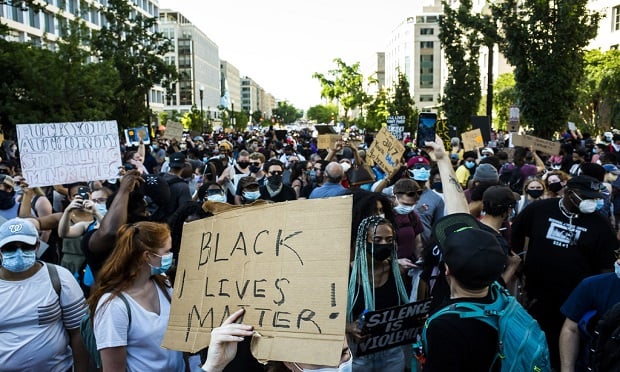 Thousands march in Washington, D.C., on June 6, 2020 to protest police brutality and the killing of George Floyd in Minnesota at the hands of local police. (Diego M. Radzinschi/ALM Media)
Thousands march in Washington, D.C., on June 6, 2020 to protest police brutality and the killing of George Floyd in Minnesota at the hands of local police. (Diego M. Radzinschi/ALM Media)
Upon one of my first ventures away from home once my state's COVID-19 stay-at-home order had expired, my car mechanic lamented that too few people were still thinking about the coronavirus risk.
Recommended For You
Want to continue reading?
Become a Free PropertyCasualty360 Digital Reader
Your access to unlimited PropertyCasualty360 content isn’t changing.
Once you are an ALM digital member, you’ll receive:
- Breaking insurance news and analysis, on-site and via our newsletters and custom alerts
- Weekly Insurance Speak podcast featuring exclusive interviews with industry leaders
- Educational webcasts, white papers, and ebooks from industry thought leaders
- Critical converage of the employee benefits and financial advisory markets on our other ALM sites, BenefitsPRO and ThinkAdvisor
Already have an account? Sign In Now
© Touchpoint Markets, All Rights Reserved. Request academic re-use from www.copyright.com. All other uses, submit a request to [email protected]. For more inforrmation visit Asset & Logo Licensing.







